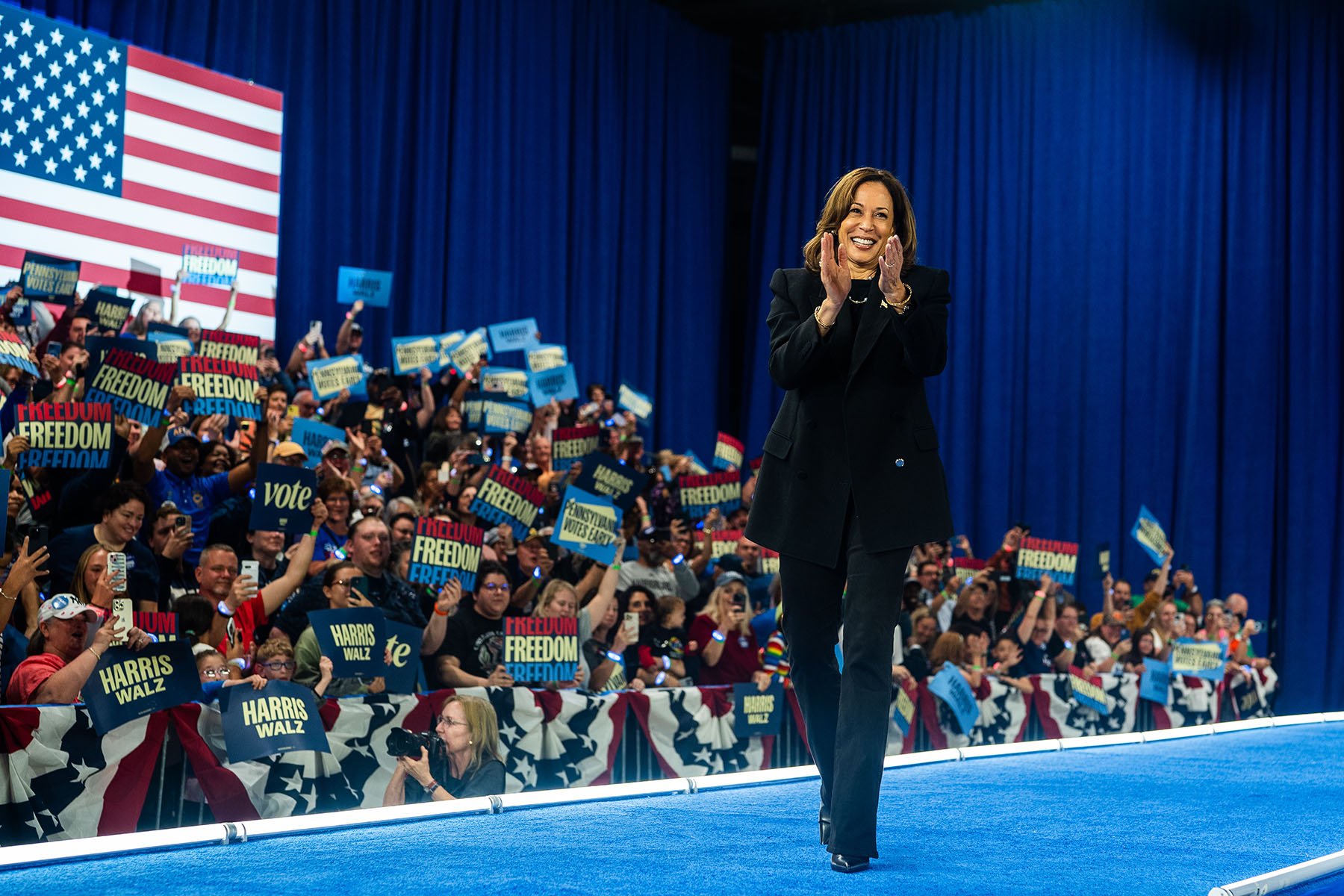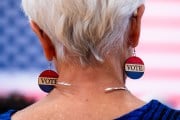Speaking to voters in Malvern, Pennsylvania, last month, former Rep. Liz Cheney — a noted anti-abortion Republican — said that the current state of abortion bans was “not sustainable” and needed to be rethought.
“I think that there are many of us around the country who have been pro-life, but who have watched what’s going on in our states since the Dobbs decision, and have watched state legislatures put in place laws that are resulting in women not getting the care they need. I think this is an issue that we’re not seeing break down across party lines,” said Cheney, campaigning alongside Democratic presidential nominee Kamala Harris.
“Knock me over with a feather,” Mini Timmaraju, president of Reproductive Freedom for All, said of her reaction to Cheney’s comments. “I was like, ‘Well, that means she’s actually with us on reproductive freedom.’”
Cheney’s words point to why the campaign of Vice President Harris says it has made talking about abortion in the context of freedom a key part of their strategy in swing states. During her truncated, three-month run, Harris has not strayed from this message. Her focus on freedom, and tying abortion rights to democracy, is an effort to form a new coalition of voters united around a concern about an assault to democratic norms from former President Donald Trump. Because a majority of Americans think abortion should be legal, Timmaraju said, they can also be convinced that their vote in the presidential election is their best tool for restoring the rights lost by the fall of Roe v. Wade.
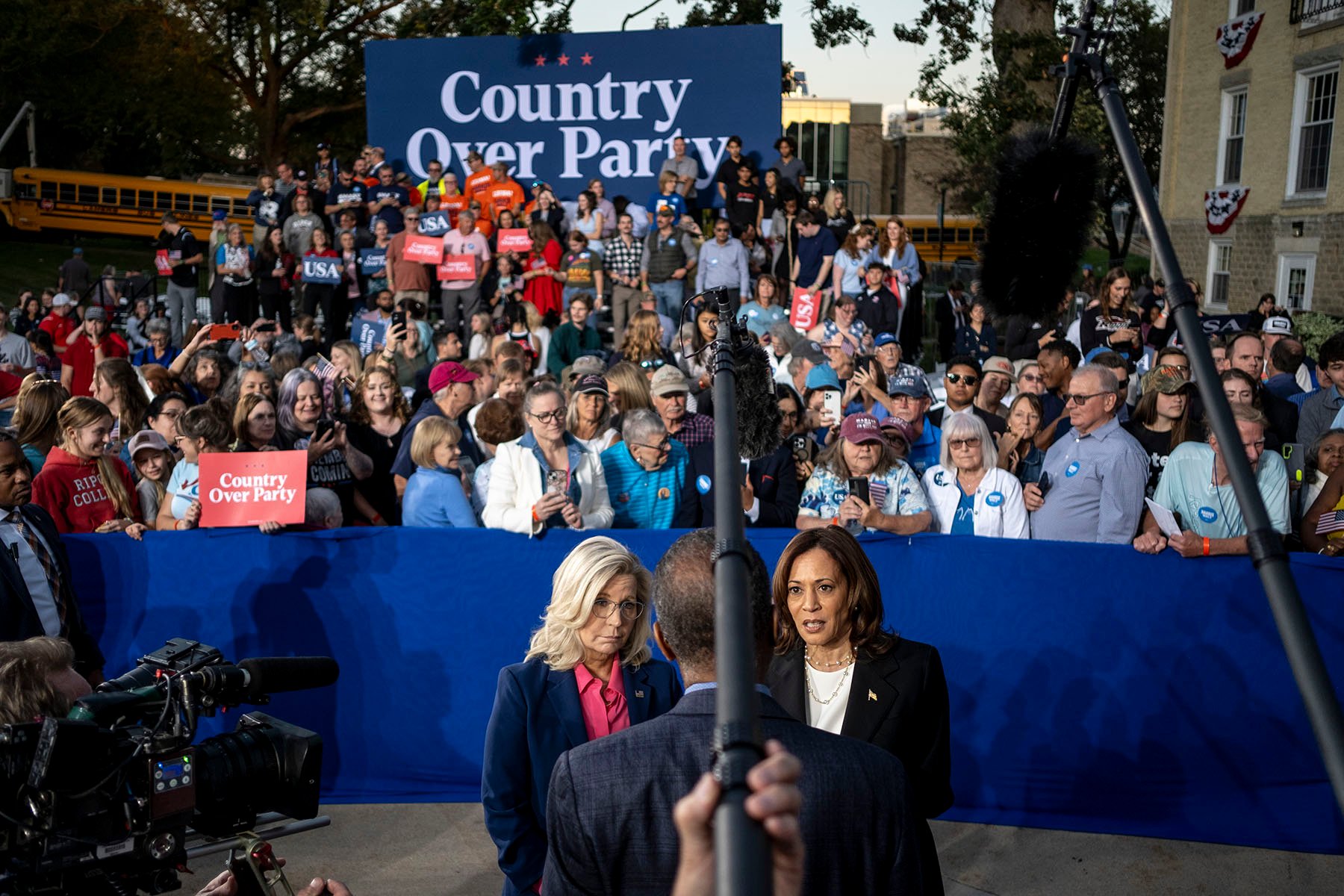
Cheney’s evolution is emblematic of a shift in how voters think about abortion. And Harris’ message has gotten to the heart of why, Timmaraju said. “Asking people if they were pro-choice or pro-life was the wrong question to ask. The real question was, ‘Do you think that politicians should decide these personal decisions or do you think you should decide?’”
Timmaraju told The 19th that when she first assumed helm of Reproductive Freedom for All — formerly NARAL Pro-Choice America — three years ago, it became clear to her that the abortion rights movement had lost the narrative by framing the issue as one of choice. It wasn’t reflective of the status of abortion access in America, even before Dobbs v. Jackson Women’s Health Organization, the Supreme Court case that led to Roe’s overturn.
“For so many Americans, they didn’t have a choice. Choice was a misnomer for the situation where you don’t have access, whether that’s economically or geographically,” she said.
Shortly after starting her new role, Timmaraju first met with Harris and her team. “We had a lot of back and forth with them about using freedom as a framework,” Timmaraju recalled.
-
Read Next:
Timmaraju stressed that she does not take credit for the work the campaign has done in crafting messaging around freedom and that when it comes to the campaign’s work, “that framework really, really is effective.”
At a reproductive freedom rally in Mableton, Georgia, five days before Election Day, Alexis McGill Johnson, the CEO of the Planned Parenthood Action Fund, took the stage alongside Democratic Rep. Lucy McBath and Gwen Walz, the wife of Harris’ running mate Minnesota Gov. Tim Walz, and explained what it has been like to crisscross the country for the campaign.
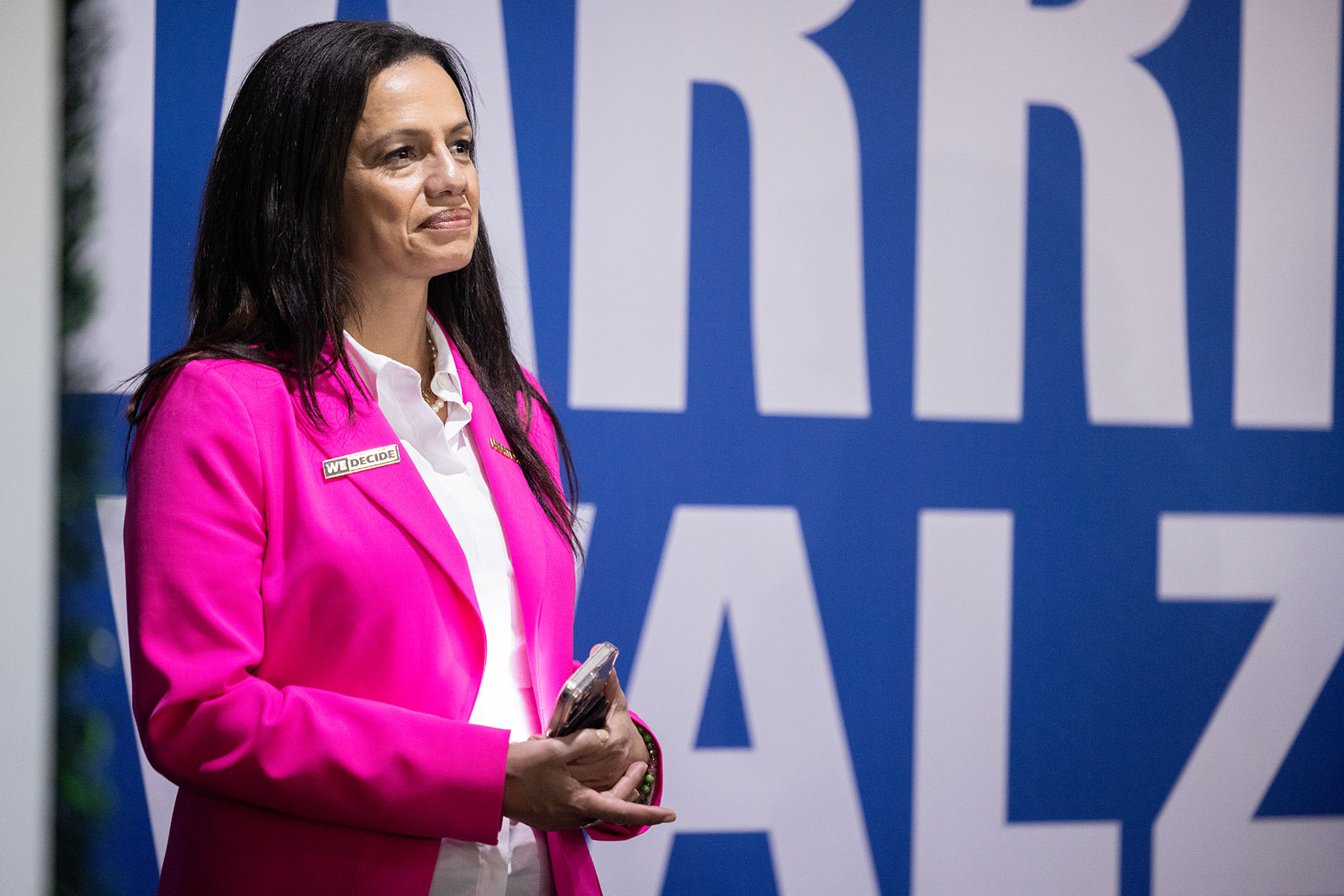
“For the past three weeks, I have gone state by state by state, as my dear friends up here have, and every time I land, I have a different set of rights. I gotta check the weather — and then I gotta figure out what I can do with my body,” McGill Johnson told the crowd. “And I think about what that means for my daughters if they choose to come here and go to Spelman like my sisters did. … I know that we cannot call ourselves a free nation when women are not free.”
Speaking to The 19th after the event, McGill Johnson stressed why freedom is such a crucial form of strategy in talking about abortion for this campaign: “It’s never been about access to health care or saving lives. We really know — it’s always about power and control.”
She said that Harris has taken this framing “to the next level” by asking over and over again on the campaign trail whether voters fundamentally believe that women can be trusted to make decisions for themselves or not. “If you live in a free nation, and if you believe in freedom, that means you actually have to trust the people to make decisions about their own lives.”
McGill Johnson stressed that while the “gender gap feels baked into the polling” right now, the conversations she’s had on the trail about reproductive freedom transcend that because of how fundamental Americans’ understanding of freedom is: “You can’t be a little bit free, right?”
The campaign sees abortion as an issue that can reach many different types of voters: moderate Republicans uncomfortable with Trump, White, non-college-educated women, and young people. According to campaign data shared with The 19th, reproductive rights are the most salient issue for voters who remain undecided.
It’s been critical in “some pretty big swings among college-educated voters away from the Republican Party to Democrats” starting with the 2022 midterms and through the 2024 presidential race, a senior campaign official said, speaking on the condition of anonymity to discuss sensitive campaign strategy.
The campaign official said the messaging and strategy tying abortion to democracy began in the last midterms and resonated with conservative and independent voters, who often link the overturn of Roe v. Wade in 2022 with the January 6, 2021, insurrection urged on by Trump.
“I do think we see abortion resonating with groups of Republicans who have increasingly felt at odds with Donald Trump,” the campaign official said, especially for those who may have voted for him in 2016. These voters “really didn’t like January 6, and I think in many ways, Dobbs was sort of like the final nail in the coffin for a lot of these folks,” she said.
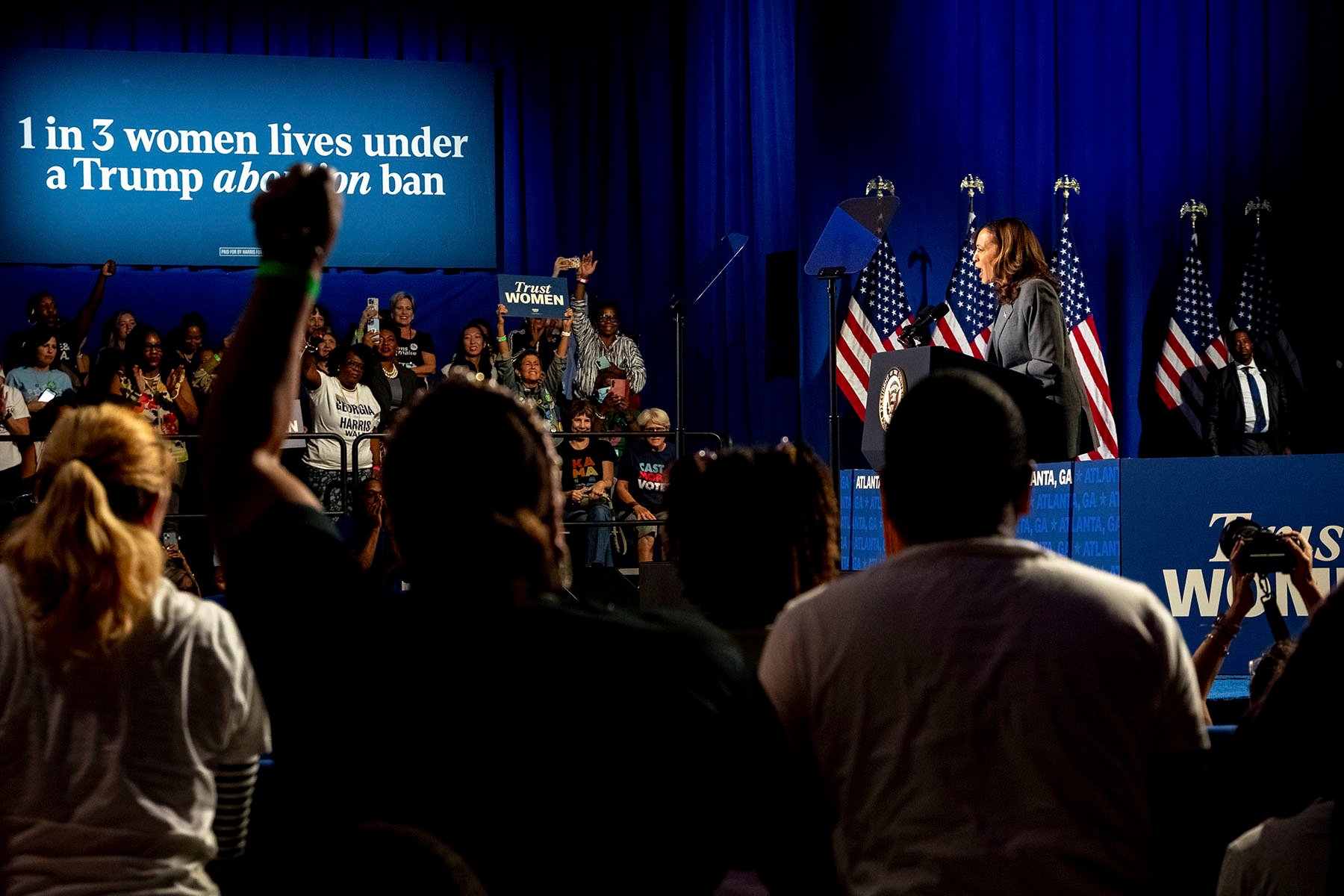
(Ben Hendren/Sipa/AP)
Sen. Laphonza Butler, a co-chair of Harris’ presidential campaign and a longtime friend of the vice president, said that she’s been struck by the degree to which abortion has mobilized voters who may otherwise have not sought Harris out.
Butler, who spoke to The 19th in September after an abortion-focused event with Harris, recalled a campaign stop in Phoenix with Harris shortly after she became the nominee. There, Butler met a mom and daughter who talked to her about concerns for the country and the vice president’s positions — including abortion. Just as Butler was leaving, the mom told Butler she needed to thank her and Harris. The woman explained that she was a Republican and had been a Nikki Haley supporter.
“She was so deeply grateful that this campaign was reaching out to women like her to make sure that they had someone who was listening to them when it came to the rights of their daughters making decisions about their own bodies,” Butler recalled. “I think the vice president is creating a space for voters whose number one issue is the protection of our freedoms, and whose number five issue may be abortion — but really giving them a place to belong and be respected and valued as voters, not to be gaslit or lied to, but to actually have a truly thoughtful conversation about the challenges in front of them.”
Jennifer Klein, the director of the White House Gender Policy Council, has worked closely with Harris on reproductive rights policy since the start of the Biden-Harris administration. When Biden and Harris first entered office, the conversation was largely focused on expanding access to medication abortion, thinking about how to increase funding for Title X family planning programs and addressing the ban on federal funding for abortion because of the Hyde Amendment.
But things started to change even before the Dobbs ruling. Klein said that when Texas in 2021 first passed Senate Bill 8 (SB 8), its law banning abortion at six weeks — before many people know they are pregnant — the administration paid attention to how quickly the reproductive health care landscape was changing. It was a swift evolution that soon thrust the question of freedom into the foreground in the vice president’s mind, Klein said.
McGill Johnson and Timmaraju both also named SB 8 as a major tipping point in the reproductive rights movement, a moment that began to thrust conversations about freedom into the foreground.
Klein said Harris’ empathy for those impacted fuels her.
“She was the first person I heard talking about reproductive freedom and the connection to other freedoms that we are fighting for in this country, whether that’s voting rights or civil rights,” Klein said. Because of this, Klein said Harris discusses abortion in very practical and specific terms in terms of which policy solutions can help increase people’s access to immediate care.
Klein said that the vice president, who has been leading reproductive health policy since the start of the Biden-Harris administration, thinks Americans must hear directly from those most impacted by abortion bans.
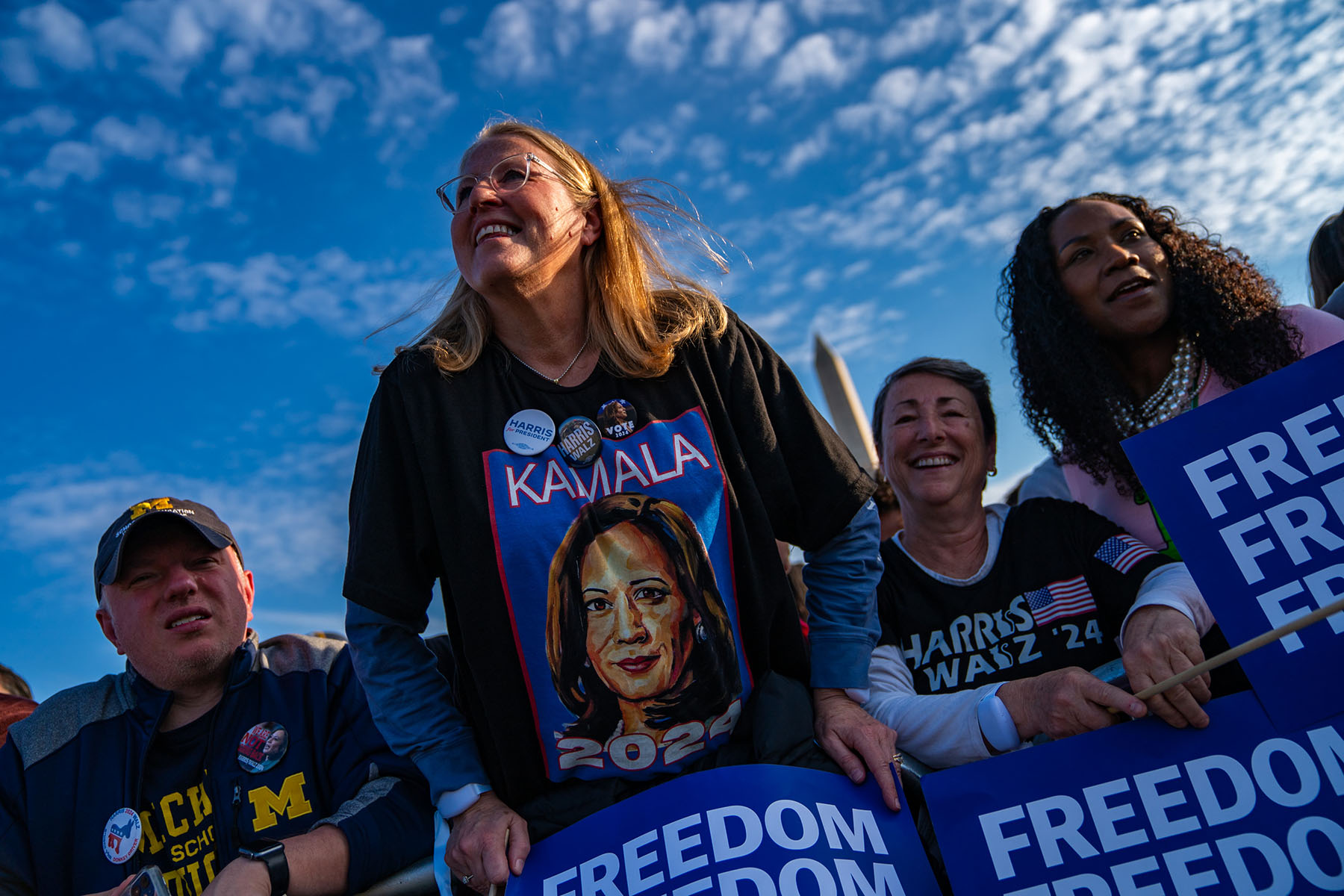
The voices of people impacted by the bans — women like Kate Cox, Amanda Zurawski and Katilyn Joshua — have been key to connecting the issue of abortion to the ideal of freedom. Their stories underscore what it means to not be free to make your own health care decisions.
This message was crystallized in a campaign ad released last month, telling the story of Ondrea Cummings, a Texas woman who was unable to receive treatment for her miscarriage, in a pregnancy she had prayed for, because of Texas’ abortion ban. She developed sepsis and now may never be able to have children on her own. The campaign official said that the campaign connected with Cummings through an informal network of Texas women who have connected after experiencing complications as a result of the state’s abortion ban.
The campaign’s reproductive rights messaging also tests well with undecided men voters, they say; following the release of the ad featuring Cummings, a second digital ad was released focused on her husband, Cesar, targeting men.
Harris also wants to point to the fact that every time a constitutional amendment has appeared on a state ballot to enshrine abortion rights, it has passed, Klein said.
“I think what she would say is that we need to make clear that people have that power and that they continue to exercise it. She feels very strongly that we need to have not only federal officials but state officials that truly represent what we’re doing across the country,” Klein said.
Klein describes Harris’ passion for reproductive freedom as “very genuine.”
“When she says how angry she was the day the Dobbs decision came down, literally as she was on her way to a maternal health event, she was so angry — for herself, for all women,” Klein said. She said Harris’ view tying freedom to abortion rights is more than just campaign messaging. “That messaging and that framing came so directly from her, because it’s what so many of us were feeling and because it was what she was feeling.”
To check your voter registration status or to get more information about registering to vote, text 19thnews to 26797.
